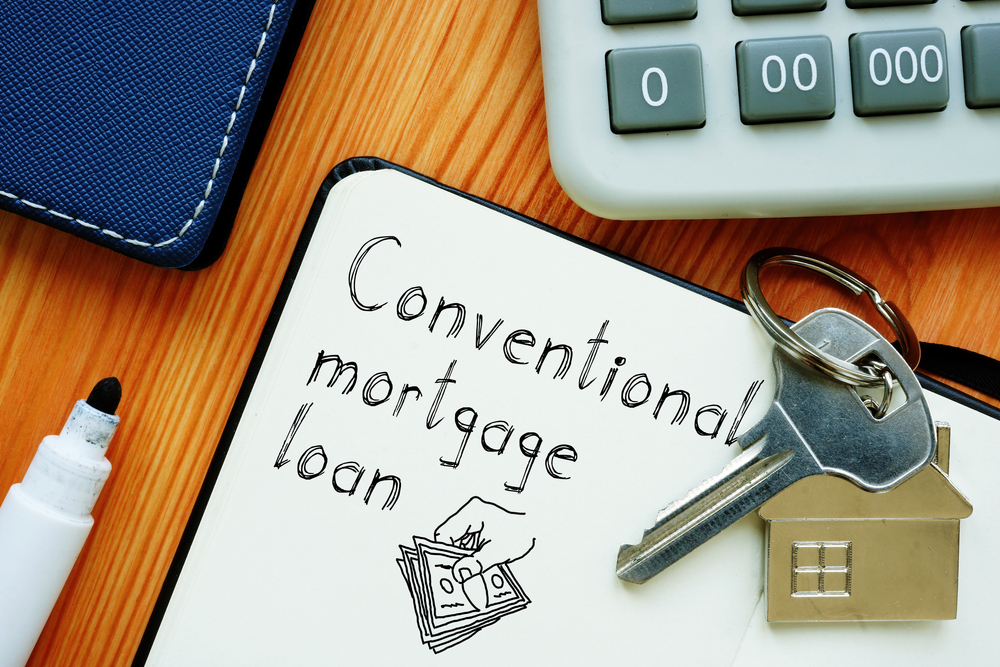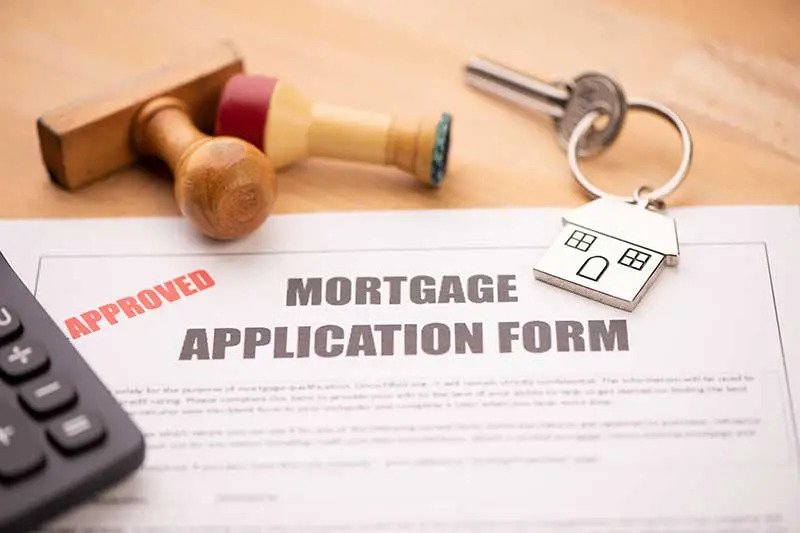What Is A Conventional Loan And How Does It Work? Your Path To Homeownership
Gain valuable insights into what is a conventional loan and how does it work? Make informed decisions about your home financing journey with our expert information on conventional loans.
Author:Gordon DickersonReviewer:Frazer PughDec 29, 20233K Shares83.4K Views

Discover what is a conventional loan and how does it work?What sets them apart, how they work, and whether they're the right fit for you. A cornerstone of mortgage financing, conventional loans provide a versatile avenue for individuals aspiring to own a home.
In this exploration, we unravel what is a conventional loan and how does it work? From eligibility criteria to interest rates and repayment structures, this guide aims to demystify the complexities, empowering you with the knowledge to make well-informed decisions. Whether you're a first-time buyer or looking to refinance, a comprehensive understanding of conventional loans is key to navigating the dynamic landscape of real estate financing.
What Is A Conventional Loan?
A conventional loan is a fundamental component of the mortgage landscape, representing a financing option that is not insured or guaranteed by any government entity. Instead, these loans are offered by private lenders and adhere to guidelines set by entities like Fannie Mae and Freddie Mac.
Unlike government-backed loans such as FHA or VA loans, conventional loans rely heavily on the borrower's creditworthiness, financial stability, and ability to make a down payment.
One defining characteristic of conventional loans is their versatility. They can be utilized for various purposes, including purchasing a home or refinancing an existing mortgage. While there is a common perception that conventional loans are accessible only to financially well-established individuals, they are, in fact, available to a wide range of borrowers with varying financial backgrounds.
The down payment for a conventional loan typically starts at 3% of the home's purchase price, though a higher down payment may result in more favorable loan terms. It's important for borrowers to be aware of private mortgage insurance (PMI) requirements if their down payment is less than 20%.
Understanding the intricacies of conventional loans is crucial for anyone navigating the path to homeownership, providing a solid foundation for making informed decisions in the complex realm of real estate financing.
How Do Conventional Loans Work?
Conventional loans operate as a cornerstone in the realm of mortgage financing, and understanding the question "what is a conventional loan and how does it work?" is pivotal for anyone seeking to navigate the path to homeownership.
Unlike government-backed loans, such as FHA or VA loans, conventional loans are not insured or guaranteed by government entities. Instead, they are provided by private lenders who adhere to guidelines established by entities like Fannie Mae and Freddie Mac.
The mechanics of conventional loans revolve around assessing the borrower's creditworthiness and financial stability. Lenders scrutinize factors such as credit history, income, and employment to determine eligibility and establish loan terms. The borrower's down payment plays a crucial role, with a common requirement starting at 3% of the home's purchase price. A higher down payment often leads to more favorable loan terms.
Interest rates on conventional loans can vary, influenced by factors such as the borrower's credit score. Additionally, understanding the concept of private mortgage insurance (PMI) is essential, as it is typically required when the down payment is less than 20%, adding an additional cost for the borrower.
In essence, the workings of conventional loans involve a comprehensive evaluation of the borrower's financial profile, offering a flexible and versatile option for individuals looking to achieve their homeownership aspirations.
What Are The Different Kinds Of Conventional Loans?
When comparing lenders and mortgage choices, you may come across many sorts of conventional loans. Here are some of the most common, along with an explanation of how they work.
- Conforming conventional loans- loans that adhere to the rules established by Fannie Mae and Freddie Mac, including the maximum loan amounts outlined above.
- Jumbo loans- Jumbo loans allow you to borrow more than the conforming loan ceiling. They do, however, often necessitate a higher credit score, a lower debt-to-income ratio (DTI), and a larger down payment.
- Portfolio loans- These are traditional loans that a lender prefers to hold in its own portfolio rather than sell on the secondary market. This option allows the lender to be more flexible than the Fannie Mae and Freddie Mac standards allow, particularly when it comes to credit scores and DTIs.
- Subprime loans - Subprime loans require a DTI of less than 50% and a credit score of 620 or higher. However, if your credit isn't quite up to par, you may be able to qualify for a subprime mortgage loan.
- Amortized conventional loans- These loans are fully amortized, so homebuyers have a fixed monthly payment from the start to the end of the loan repayment period, with no balloon payment. Fixed or adjustable mortgage rates are available for amortized conventional loans.
- Adjustable-rate mortgage loans- A fixed-rate mortgage loan has the same interest rate, and thus the same monthly payment, for the duration of the loan. An adjustable-rate mortgage, on the other hand, provides a fixed interest rate for a specific length of time, often between three and ten years. After that, your interest rate will be adjusted annually based on market rates.
What Are The Advantages Of A Conventional Loan?
Conventional loans emerge as a popular choice in the mortgage landscape, boasting several advantages that make them a compelling option for prospective homebuyers. In this exploration, we delve into the key advantages that set conventional loans apart.
- Versatility and Purpose - A standout feature of conventional loans is their versatility. Unlike some government-backed loans that may have specific restrictions, conventional loans can be applied to various real estate transactions. Whether you're purchasing your first home, refinancing an existing mortgage, or considering an investment property, a conventional loan offers the flexibility to accommodate diverse financial goals.
- Competitive Interest Rates - Conventional loans often come with competitive interest rates, especially for borrowers with strong credit profiles. The interest rates on conventional loans are influenced by factors such as the borrower's credit score and down payment amount. This flexibility empowers borrowers to secure favorable terms, potentially resulting in lower long-term costs compared to other mortgage options.
- Higher Loan Limits - Conventional loans typically boast higher loan limits compared to government-backed alternatives like FHA or VA loans. This advantage proves particularly beneficial for individuals seeking to finance properties in areas with higher real estate values. The higher loan limits provide greater flexibility in choosing homes that meet individual preferences and needs.
- Lower Costs with a Higher Down Payment - While conventional loans may require a down payment, there's a significant cost-saving advantage for borrowers capable of making a higher upfront payment. A down payment of at least 20% eliminates the need for private mortgage insurance (PMI). By sidestepping PMI, borrowers can lower their monthly expenses, making homeownership more financially sustainable in the long run.
- Streamlined Refinancing Options - Conventional loans offer streamlined refinancing options, allowing borrowers to adapt to changing market conditions or their own financial situations. This flexibility proves invaluable, enabling homeowners to refinance their mortgage terms to better align with evolving needs. Whether seeking to take advantage of lower interest rates or adjusting the loan structure, conventional loans provide a nimble solution to meet changing circumstances.
How To Apply For A Conventional Loan?
Applying for a conventional loan can be a stressful process, but with proper planning and execution, it is quite possible. If you're thinking about applying for a traditional loan in the near future, here are some conventional loan requirements you should consider.
Consider Your Financial Situation
Before you start actively looking at mortgages, it's a good idea to have your personal finances in order. That includes mending bad credit if it exists, paying down existing debts striving to increase your monthly income, and saving for a down payment as large as you can safely afford.
Look Into Lenders
There are numerous sites where you can apply for a mortgage, ranging from small credit unions to huge international banks, and from consumer-friendly lending organizations to less-than-reputable ones. Some have better terms than others, and some make it easier to apply, but at a higher risk.
These are all variables to consider while looking for the best mortgage lender. It's a good idea to evaluate various lenders before deciding on the best fit for your circumstances.
Apply For A Mortgage
You can apply for a mortgage once you've determined which lender best meets your needs. Your house hunting can now begin! The application procedure might take a while, sometimes more than a month, and requires a lot of paperwork, so it's best to start early, preferably before you start looking for a house.
Because there is so much money at stake, conventional house loans can be complicated and frustrating. However, by knowing the ins and outs of mortgages before applying, you may give yourself an advantage and the information you need to select the best financial instrument for you.
Downsides Of A Conventional Loan
Along with some of the advantages of obtaining a conventional loan over a government-backed loan, there are some drawbacks to consider:
- More credit score requirements- To qualify for a conforming conventional loan, you normally need a credit score of at least 620, which is more than what certain government-backed loans need.
- Higher down payment requirements - If you're a first-time homebuyer, certain traditional lending programs enable you to put down 3% or perhaps nothing at all, but expect to pay 5% after that. In comparison, FHA loans require a 3.5% down payment, while USDA and VA loans require no down payment at all.
- Stricter qualification criteria- Government-insured mortgage loans pose less risk to the lender, so you may be able to qualify for one if you meet the agency's qualifying conditions. In contrast, because the lender is taking on greater risk by originating the loan, your personal financial condition may be inspected more extensively with a traditional loan.
How To Qualify For A Conventional Loan
If you've determined that a conventional loan is best for you, here's how to get one:
- Examine your credit score -Before you do anything else, you need to understand your credit situation. You can do this for free by checking your credit score with Experian. If your credit score is 620 or better, you may be eligible for a conforming conventional loan. And if it's in the mid - to upper-700s, you'll be more likely to qualify for favorable loan terms.
- Put money aside for a down payment -While many conventional loans do not require a large down payment, the more money you put down, the more likely you are to qualify for a lower interest rate.
- Examine your debt-to-income ratio -Lenders will consider your DTI in addition to your credit score. Lenders often want to verify that your total monthly loans do not exceed 36% of your gross monthly income. In rare situations, lenders can stretch their necessary DTI to 43% or more, but the maximum Fannie Mae and Freddie Mac would allow for conforming loans is 50%.
- Investigate mortgage lenders -Consider several mortgage providers, including what rates they offer, how the application process works, and whether you can apply online. Before applying, try to discover at least three to five lenders that you prefer.
- Obtain preapproval -A mortgage preapproval is a document from a mortgage lender that effectively agrees to give you up to a particular amount of money to buy a home if certain conditions are met. During this procedure, the lender or broker will inform you whether any other changes are required to improve your eligibility to purchase a home.
What Is A Conventional Loan And How Does It Work? - FAQs
How Does The Approval Process For A Conventional Loan Work?
Approval for a conventional loan involves a thorough assessment of the borrower's credit history, income, employment, and other financial factors. Lenders use this information to determine eligibility and loan terms.
What Is The Minimum Down Payment Required For A Conventional Loan?
While it varies, a common requirement is a down payment of at least 3% of the home's purchase price. However, a larger down payment may lead to better loan terms.
Are There Limits On Loan Amounts For Conventional Loans?
Yes, there are loan limits, but they are higher than those for FHA and VA loans. The specific limit depends on the location of the property.
What Are Some Common Misconceptions About Conventional Loans?
One misconception is that conventional loans are only for well-established individuals. In reality, they are accessible to a wide range of borrowers with varying financial backgrounds.
How Do Interest Rates On Conventional Loans Compare To Other Mortgage Types?
Interest rates for conventional loans can vary but are often influenced by the borrower's credit score. Generally, they may be competitive with or lower than rates for government-backed loans.
Final Thoughts
In unraveling the intricacies of homeownership finance, the question, "What is a conventional loan and how does it work?" takes center stage. As we draw the curtains on this exploration, you're now equipped with the insights needed to navigate the world of conventional loans with confidence.
This knowledge empowers you to assess your financial landscape, evaluate your options, and embark on the path to homeownership or financial restructuring with a clear understanding of how conventional loans work. The journey to your dream home is now not only an aspiration but a well-informed and strategic endeavor.
Jump to
What Is A Conventional Loan?
How Do Conventional Loans Work?
What Are The Different Kinds Of Conventional Loans?
What Are The Advantages Of A Conventional Loan?
How To Apply For A Conventional Loan?
Downsides Of A Conventional Loan
How To Qualify For A Conventional Loan
What Is A Conventional Loan And How Does It Work? - FAQs
Final Thoughts

Gordon Dickerson
Author

Frazer Pugh
Reviewer
Latest Articles
Popular Articles

